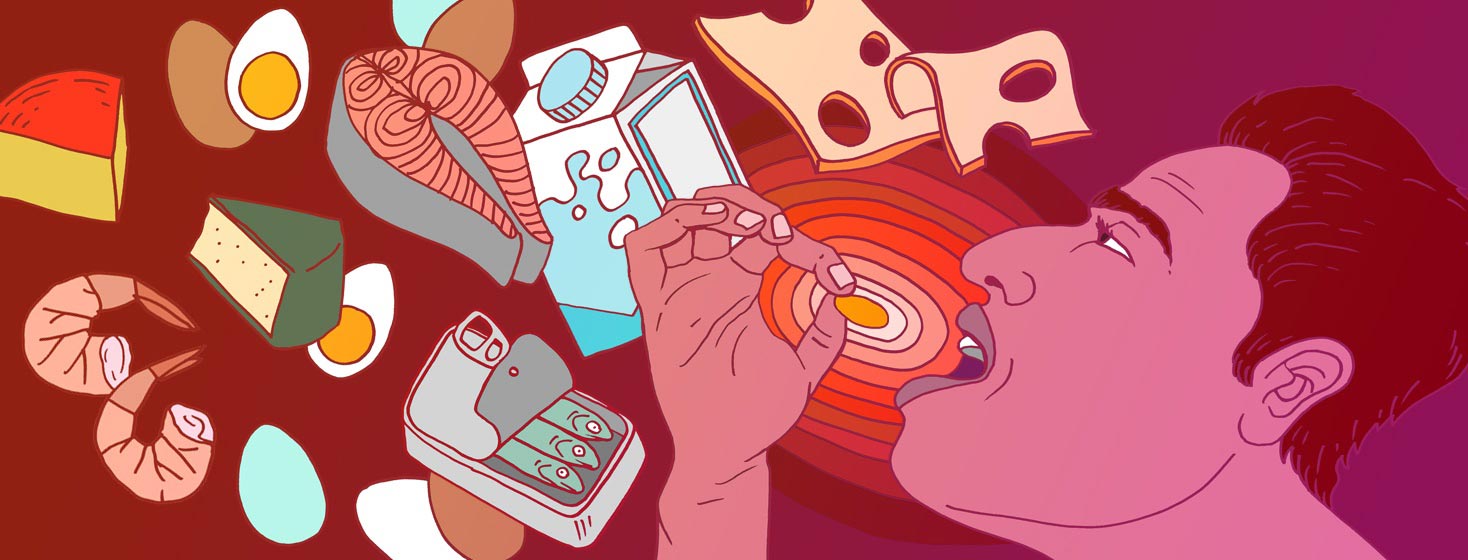Should You Take a B12 Supplement?
It's likely you've heard of vitamin B12's many benefits. We hear claims that it improves memory, provides a burst of energy, and improves mood. In addition, B12 is also touted as one of the vitamins needed to support the liver. For people with hepatitis C, how important is B12 supplementation, and what is the evidence behind it?
What is B12?
Only foods derived from animal products contain vitamin B12. For example, foods that are rich in B12 include eggs, milk, poultry, fish, and meat. Common plant foods do not contain B12.
What does B12 do in the body?
B12 has many functions within the body. For example, it helps form red blood cells, supports bone health, and improves heart health. A deficiency in B12 can sometimes lead to irreversible damage to the central nervous system, comprised of the brain and the spinal cord.
What are symptoms of B12 deficiency?
Symptoms of deficiency are usually slow to develop, but in some people, the symptoms may appear suddenly. Common reported symptoms include:
- Memory loss
- Fatigue and weakness
- Difficulty thinking or brain fogginess
- Sore, red tongue and/or mouth ulcers
- Anemia
- Numbness or tingling of hands, feet, or legs
Common uses of B12 supplements
There are a number of conditions or states that are managed by B12, such as the following:
- Pernicious anemia
- Deficiency due to diet (vegans, those who do not eat any food of animal origin, typically have to supplement with B12)
- Impaired absorption states, such as when people get older
- Liver or kidney disease
The paradox of B12 deficiency in liver disease
People with liver disease, including viral hepatitis, hepatocellular carinoma, and cirrhosis, may actually have higher serum (blood) B12 levels. This is because B12 is stored in the liver and is released into the bloodstream when liver cells undergo cytolosis, or a bursting of cells. In these cases, a blood test will show elevated B12 levels in the bloodstream, which may mask a true B12 deficiency. The deficiency results because the tissues cannot take up the majority of the B12 floating in the blood as it is in the inactive form.1
However, elevated B12 levels do not necessarily imply chronic liver disease. For people who present with elevated B12 levels, there are other conditions that should be considered.
Should you take a B12 supplement?
The good news is that B12 supplements are readily available at drugstores. For people at risk of deficiency, your doctor may recommend a 1,000 mcg sublingual tablet to start. The sublingual tablets dissolve under the tongue, therefore absorbing into the bloodstream better.
For people who are not seeing results from oral B12 supplements, a B12 injection, upon discussion with your doctor, may be suitable. The most common dose is 1,000 mcg injected in the muscle, such as the deltoid, once monthly. Because there are so many stages of liver disease, it is a good idea to ask your doctor prior to starting B12 supplementation.

Join the conversation